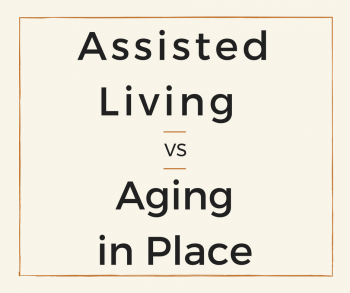When it comes to the care of our seniors, ensuring their well-being and quality of life is of utmost importance. Palliative care, a specialized approach to healthcare, aims to enhance the quality of life for seniors facing terminal or chronic illnesses. It focuses on providing relief from symptoms, pain, and the stress associated with such conditions, while also addressing the emotional and psychological needs of patients and their families. In this article, we will delve into the significance of palliative care for seniors and how it positively impacts their overall well-being.
The Holistic Approach of Palliative Care
Palliative care takes a holistic approach, considering the physical, mental, emotional, and spiritual well-being of seniors. It emphasizes the importance of open communication, shared decision-making, and a person-centered approach to care. By understanding the unique needs and preferences of each senior, palliative care professionals are able to develop individualized care plans that optimize their quality of life.
Pain and Symptom Management
A key aspect of palliative care is managing pain and symptoms associated with serious illnesses. Seniors experiencing discomfort due to chronic conditions or the side effects of treatments can greatly benefit from the expertise of palliative care teams. By utilizing medication, therapies, and alternative treatments, such as massage or acupuncture, palliative care aims to alleviate pain and improve the overall comfort of seniors, allowing them to focus on enjoying their lives to the fullest extent possible.
Emotional and Psychological Support
Serious illnesses can take a toll on the emotional and psychological well-being of seniors. Palliative care professionals recognize this and provide valuable emotional support to both patients and their families. By offering counseling, therapy, and specialized interventions, palliative care teams help seniors navigate their emotions, address fears and anxieties, and find solace during difficult times. This emotional support not only enhances their quality of life, but also strengthens their resilience in the face of adversity.
Improved Quality of Life for Individuals and Their Families
Palliative care not only benefits seniors, but also their families. It provides much-needed relief to caregivers, who often face immense physical and emotional strain while caring for their loved ones. Palliative care teams lighten the burden by offering respite services, counseling, and support groups specifically designed for family members. This comprehensive approach ensures that the entire family is cared for and can make the most of their time together, fostering a positive and supportive environment.
Where to Access Palliative Care
Palliative care is available in various settings, depending on the needs and preferences of the senior and their family. It can be provided in a hospital, nursing home, or even in the senior’s own home. Additionally, some palliative care programs offer outpatient services, allowing seniors to receive the care they need while continuing to reside in their familiar surroundings. These options provide flexibility and convenience, ensuring that seniors can access palliative care wherever they feel most comfortable.
The Role of Technology in Palliative Care
In the age of technology, its integration has proven to be beneficial in the field of palliative care as well. Telemedicine and virtual platforms allow seniors to consult palliative care professionals remotely, reducing the need for travel, especially for those with limited mobility. These digital advancements also enable continuous monitoring of symptoms and provide immediate assistance when required. Technology plays a vital role in making palliative care more accessible, efficient, and responsive to the evolving needs of seniors and their families.
Conclusion
Palliative care has revolutionized the healthcare industry by providing seniors with the support and specialized care they require during challenging times. By adopting a holistic approach, managing pain and symptoms, offering emotional support, and enhancing the overall quality of life, palliative care has become an integral part of ensuring the well-being of our beloved seniors. The integration of technology further enhances their access to these crucial services. With palliative care, seniors can find comfort, dignity, and peace, enabling them to cherish each moment and experience the highest possible quality of life.


